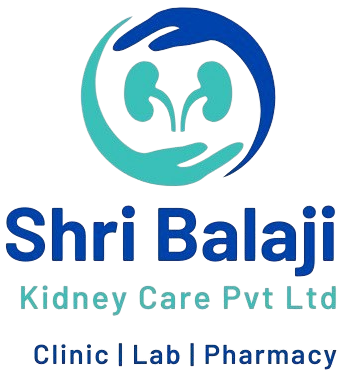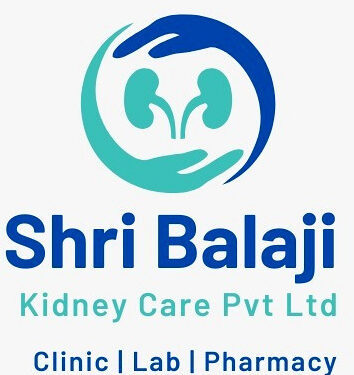End Stage Renal Disease (ESRD) is a severe health condition where the kidneys can no longer function effectively. This stage is critical, affecting millions worldwide. Kidneys serve vital functions, so their failure has significant impacts on health. This article aims to inform about ESRD causes, including end stage renal disease symptoms, and the available treatment options. Our goal is to empower readers with knowledge and promote understanding of ESRD.
Kidneys: Essential for Health
Kidneys play a crucial role in maintaining overall health by filtering waste and excess fluids from the blood. They’re essential for maintaining the body’s fluid balance, electrolyte levels, and blood pressure. Proper kidney function is vital for overall wellness, influencing everything from blood pressure to bone health. Keeping kidneys healthy is crucial in preventing disorders like end stage renal disease.
End Stage Renal Disease: A Critical Condition
End Stage Renal Disease represents the last stage of chronic kidney disease. In this stage, kidneys operate at a diminished capacity, leading to an inability to filter waste effectively. When end stage renal disease symptoms become apparent, the effects on daily life are profound, requiring prompt medical attention. Regular monitoring can help manage the decline.
Unveiling the Causes: Why ESRD Occurs
The primary causes of ESRD are diabetes and hypertension. These conditions gradually damage kidneys over time. Other potential causes include polycystic kidney disease or chronic infections. Risk factors like obesity, smoking, and a family history elevate the chances of developing end stage renal disease. Awareness and management of these factors can prevent progression.
Recognizing End Stage Renal Disease Symptoms
In early stages, end stage renal disease symptoms may be silent, often unnoticed. As the disease progresses, symptoms like nausea, fatigue, and changes in urination patterns may surface. Prompt medical consultation is vital when experiencing these symptoms. Early detection and intervention can slow the disease’s progression significantly.
Diagnostic Journey: Detecting ESRD
Diagnosing ESRD involves standard tests like blood, urine tests, and estimating the glomerular filtration rate (GFR). Chronic kidney disease progresses through stages, with stage 5 indicating end stage renal disease. The progression speed varies, underscoring the importance of regular check-ups for at-risk individuals.
Exploring Treatment Options: Choosing the Right Path
- Dialysis provides options like hemodialysis and peritoneal dialysis, essential for removing waste from the body.
- Transplant opportunities offer a permanent solution, though the process and waiting lists can be challenging.
- Some opt for alternative care focusing on comfort without dialysis. Choosing the right path involves considering factors like lifestyle, health status, and personal preferences.
Managing ESRD: Lifestyle and Medication
Management of ESRD involves adhering to dietary recommendations, like reducing sodium and potassium intake. Controlled fluid intake ensures optimal body function. Medications play a role in managing symptoms, improving the quality of life. Adhering to these strategies is key to managing end stage renal disease symptoms effectively.
Coping Emotionally: The Human Side of ESRD
ESRD presents psychological challenges for patients and families. Coping involves various mechanisms, such as seeking support networks and counseling services. Emotional support is crucial in managing end stage renal disease symptoms. Knowing where to find help can make the journey more bearable.
Empowering Decisions: Educating on Terminologies
Breaking down medical jargon is vital for effective communication. It encourages patients to be active participants in their health care decisions. End stage renal disease education empowers patients with knowledge, facilitating informed decision-making about their treatment and lifestyle choices.
Organ Donation: A Beacon of Hope
Organ donation significantly enhances transplant rates, providing hope for many with end stage renal disease. Despite its importance, current organ donation rates in India remain low. Individuals can contribute by registering as organ donors, offering a chance at a new life for those in need.
Prevention Strategies: Guarding Against Kidney Disease
Healthy lifestyle choices are vital in preventing kidney disease. Regular exercise and a balanced diet support kidney health. At-risk individuals should undergo regular screening and monitoring. Emphasizing early intervention strategies can prevent the progression to end stage renal disease.
Living with ESRD: Daily Life and Adjustments
Living with ESRD requires adjustments in daily routines and lifestyle. Despite the challenges, maintaining a quality life is possible with support and appropriate management strategies. Being aware of the lifestyle changes and embracing them positively impacts end stage renal disease symptoms management.
Conclusion: Looking Ahead with Optimism
Understanding End Stage Renal Disease is crucial for proactive health habits and early detection. While the journey is challenging, there’s hope in future medical advancements. Adopting a positive outlook and engaging in proactive health practices can make a significant difference. The knowledge and empowerment gained can lead to better outcomes for those living with end stage renal disease.
Worried about kidney health or ESRD symptoms?
Early detection can change the course of your life.
Book your renal screening or consult with Dr. Krishna Patil today — and take the first step toward better kidney care and a healthier future.



